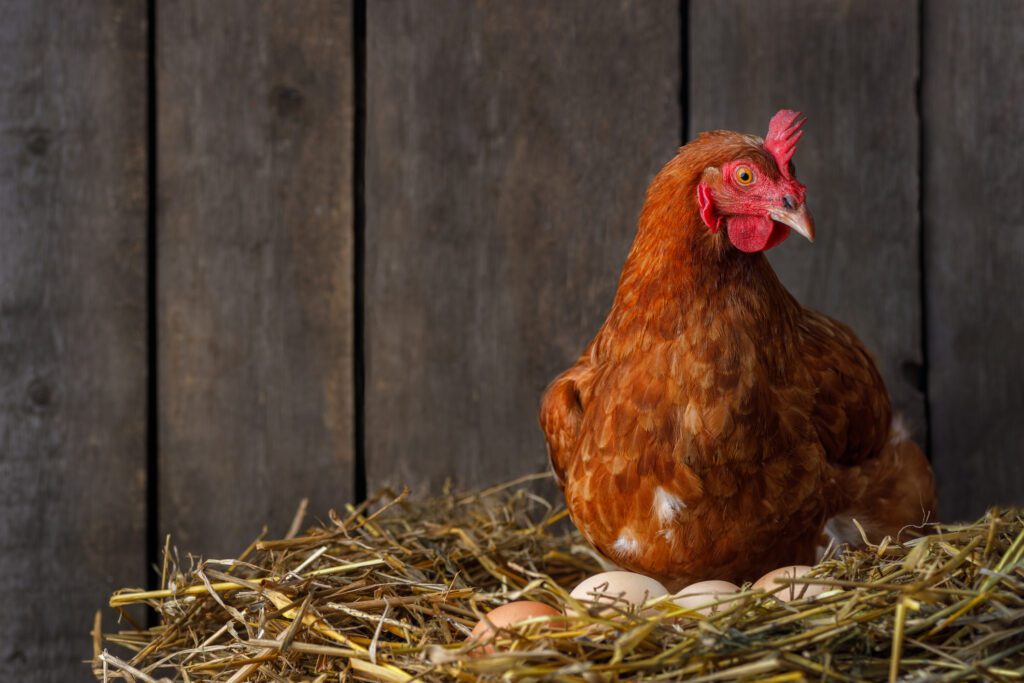How to Take Care of a Chicken
At Paws and Claws Animal Medical Center, our passion for animals extends beyond cats and dogs to include all creatures great and small. Chickens, with their endearing personalities and the delicious eggs they provide, are a delightful addition to any backyard or small farm. If you’re a proud chicken parent or considering becoming one, this blog is for you. We’ll share valuable tips on how to take care of your feathered friends.

Housing and Space
Chickens need a safe and comfortable place to roost at night and lay eggs. Ensure your chicken coop is well-ventilated, secure, and predator-proof. Provide at least 2-3 square feet of space per chicken in the coop and at least 8-10 square feet per bird in the outdoor run. Clean the coop regularly to prevent disease and discomfort.
Feeding Your Chickens
A balanced diet is essential for your chicken’s health and egg production. A good quality commercial chicken feed is the foundation of their diet. You can supplement this with kitchen scraps, grains, and greens. Ensure they have access to clean, fresh water at all times.
Health and Wellness
Just like other pets, chickens need regular health check-ups. At Paws and Claws Animal Medical Center, we recommend scheduling annual wellness exams for your flock. Watch for signs of illness, such as lethargy, ruffled feathers, or changes in appetite, and seek veterinary care promptly if needed.
Parasite Prevention
Chickens are susceptible to internal and external parasites. Implement a regular parasite prevention program to keep your chickens healthy. This may include deworming and ensuring their living area is clean and free from mites and lice.
Grooming and Hygiene
Chickens are relatively low-maintenance when it comes to grooming. They will dust-bathe to keep their feathers clean and reduce the risk of mites. Provide a designated dust-bathing area with sand, diatomaceous earth, or wood ash. Occasionally trim overgrown beaks and toenails, but be cautious to avoid injuring your chickens.
Social Interaction
Chickens are social animals and thrive when they have companions. Keeping multiple chickens is ideal to prevent loneliness and stress. Observe your chickens’ interactions and intervene if bullying or aggressive behavior occurs.
Nesting and Egg Collection
Provide nesting boxes with clean, dry bedding material for your hens to lay eggs. Collect eggs daily to ensure they stay clean and fresh. Inspect the nesting boxes regularly to remove any damaged or soiled eggs.
Safety
Protect your chickens from potential hazards. Ensure your coop and run are secure to keep them safe from predators like raccoons, foxes, and birds of prey. Chickens should be let out to free-range only under supervision.
Understanding Local Regulations
Before getting chickens, research your local regulations and bylaws regarding backyard chickens. Some areas have restrictions on the number of chickens you can keep and other requirements.
Chickens make wonderful and rewarding pets, providing not only fresh eggs but also hours of entertainment with their quirky personalities. By following these tips from Paws and Claws Animal Medical Center, you can ensure that your feathered friends lead happy, healthy lives. If you have any questions or concerns about your chickens’ well-being, don’t hesitate to reach out to our experienced veterinarians at Paws and Claws Animal Medical Center. We’re here to help you give your chickens the best care possible.
